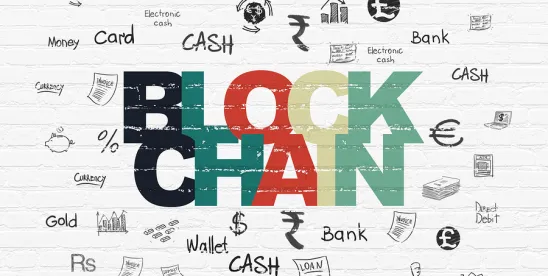On August 1, 2017, Delaware’s historic blockchain law became effective. The Delaware General Corporation Law (DGCL) has always required corporations to keep records of their stock and stockholders. Before this new law was adopted, there was nothing specifically stopping a Delaware corporation from using blockchain technology to keep track of its stockholders, but there was also a great deal of regulatory uncertainty. With these new changes to the DGCL, companies incorporated in Delaware are now expressly allowed to keep track of their stockholders and outstanding stock by using blockchain (also known as distributed ledger) technology.
What Does the Law Mean for Delaware Corporations?
Currently, stock ledgers are usually tracked on an Excel spreadsheet or in an SQL database. If a corporation issues new shares or if existing shares are transferred among stockholders, the corporation’s stock ledger must be updated. Keeping these corporate records up to date requires a human to input the relevant information (who may not always keep records fully up to date or who may make errors inputting the information). The current system of tracking the stock of a company is based on the issuance of shares on paper. Processes for authenticating and authorizing the ownership and transfer of shares are complex and costly.
As we discussed previously, one of the key advantages of blockchain technology is that there is a digital record of ownership of an asset (such as shares of stock) that is time stamped, and no single record or “block” can be changed without breaking the chain. It establishes accountability and transparency without the need for third-party verification. For a corporation (and investors), the savings in administrative overhead and fees could be substantial. In addition, because a blockchain relies on a peer-to-peer network of computers, the blockchain platform removes the risk of a single point of failure.
However, blockchains are also transparent and not all investors will want their positions to be visible. In addition, because a block cannot be changed without breaking the chain, there is no way to fix errors. Companies that have a limited number of stockholders may also find the setup costs too steep. Blockchain technology also requires shares to be uncertificated, so corporations that still require paper share certificates to be issued will need to adopt new corporate practices.
Because the new Delaware law is enabling, rather than prescriptive, no specific technology is required. As a result, it is anticipated that many vendors will offer solutions, and over time those solutions will become more sophisticated and less expensive. They will also address the issues that may make companies reluctant to adopt the technology.
What Is the State of Delaware Doing with Blockchain?
Delaware’s new blockchain law is part of a broader initiative championed by former Delaware Governor Jack Markell to adopt blockchain technology in state government. Delaware has appointed a director of the Delaware Blockchain Initiative and is working with a company called Symbiont to develop distributed ledger solutions for Delaware’s archival records.
With about two-thirds of the Fortune 500 companies incorporated in Delaware, the statutory right to use distributed ledger technology may promote widespread adoption of blockchain platforms and may transform stock exchanges as we know them today.




 />i
/>i
